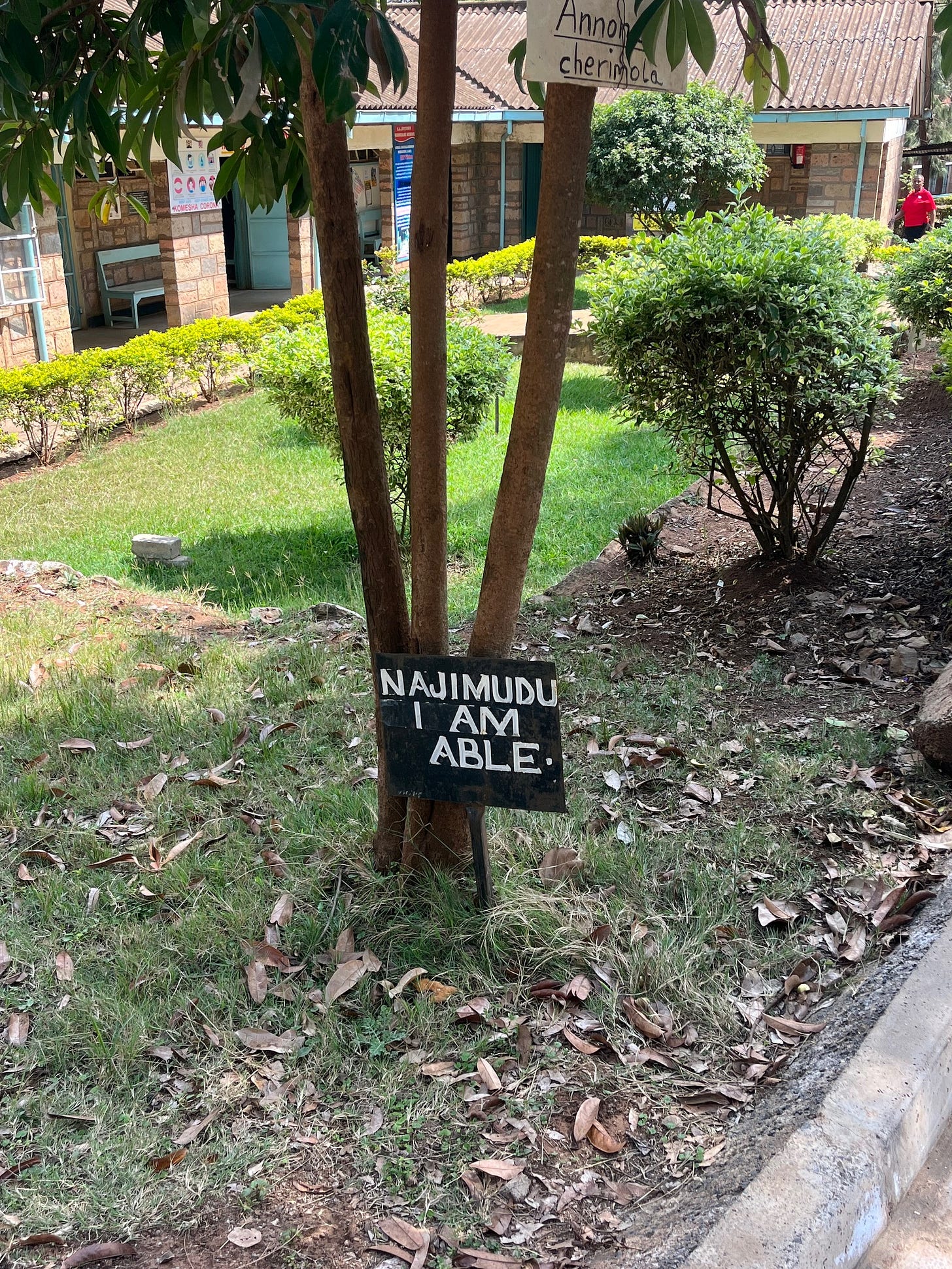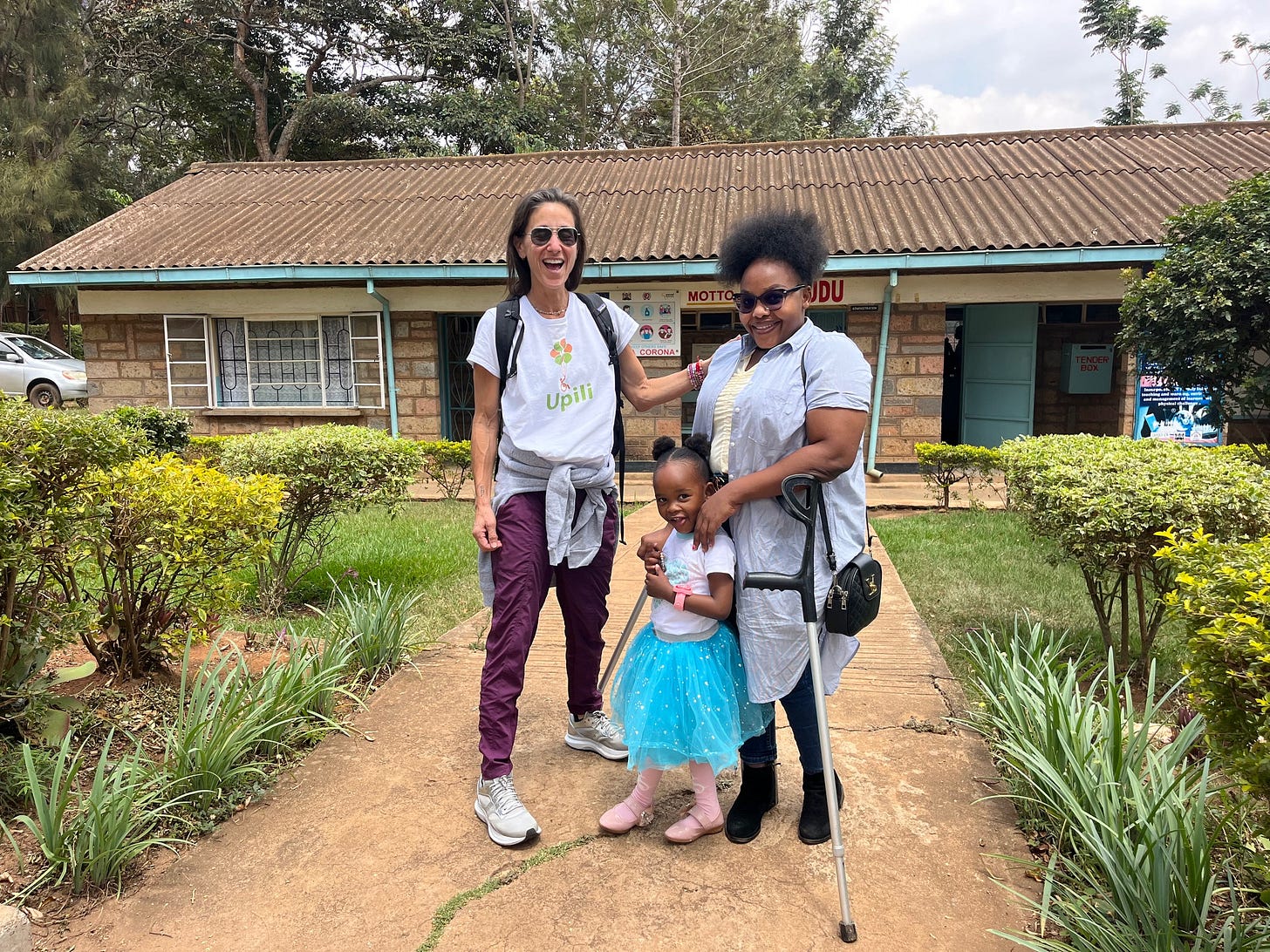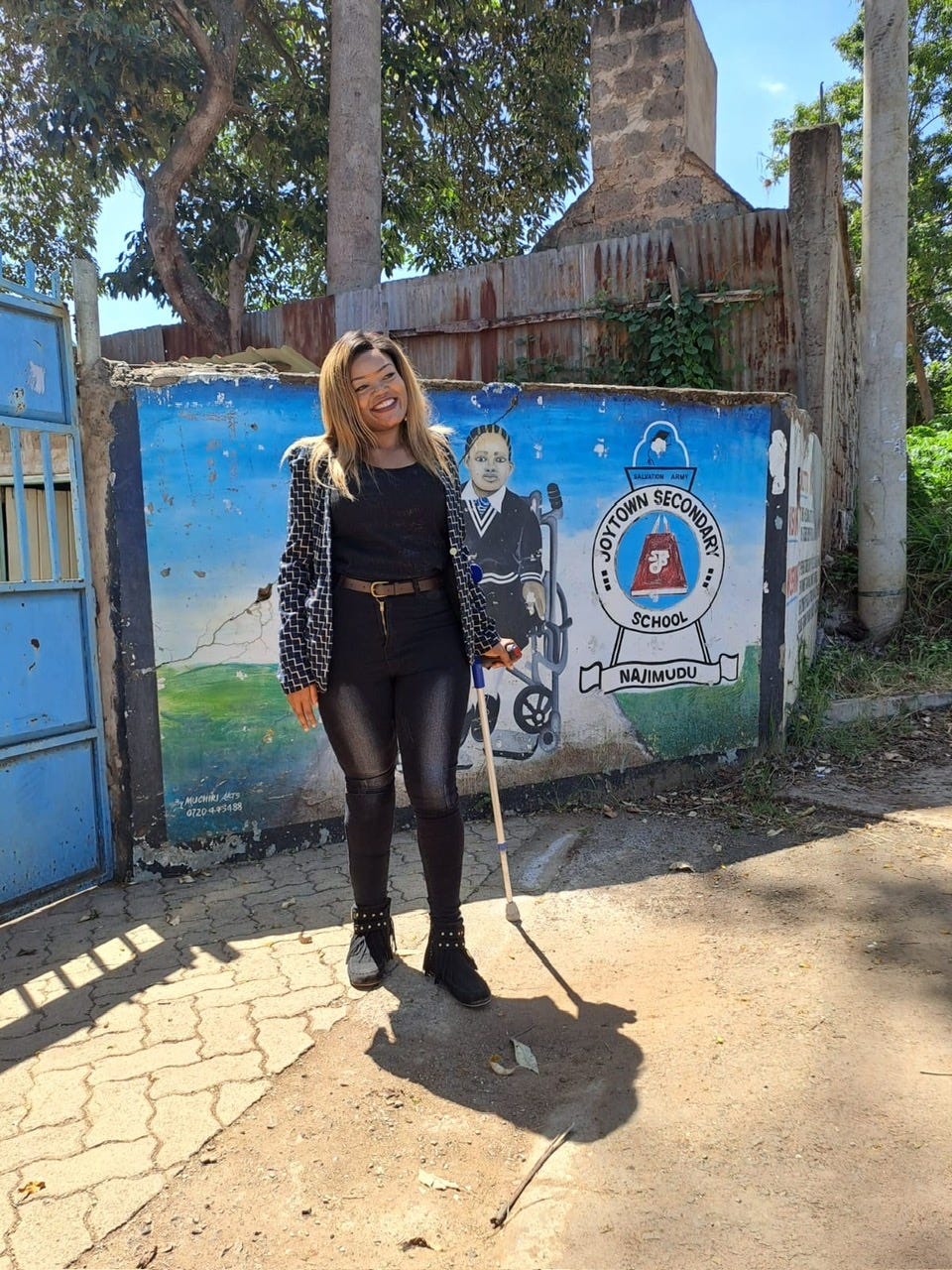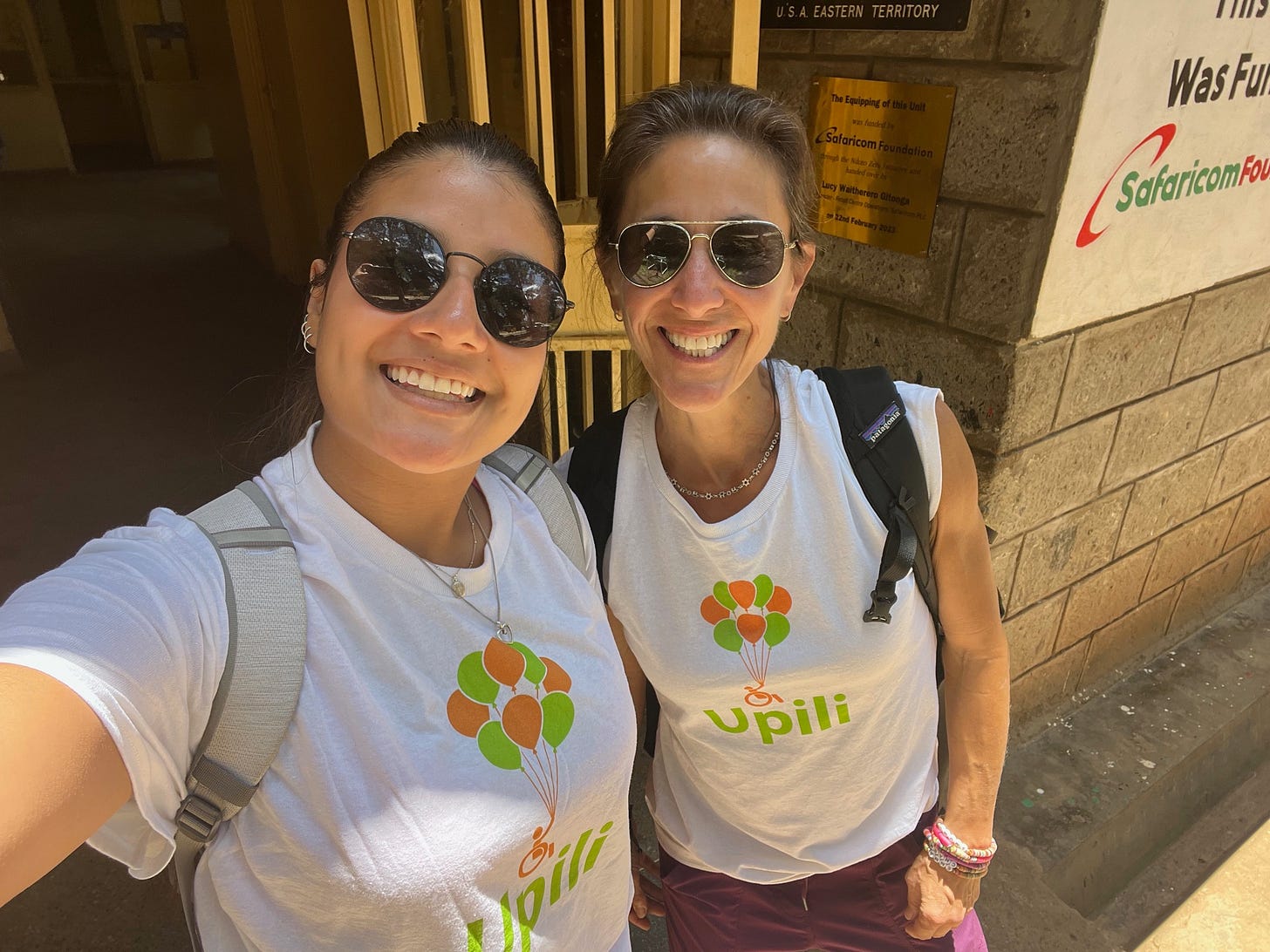If you would have told me even five years ago that I’d spend my days physically in Austin, Texas, yet mentally living in the East African time zone, I’d have never believed it.
If you’d have laughed and continued: Yep, you work at the intersection of storytelling and disability inclusion and lead a Team of decidedly non-Jewish Kenyans all of whom now know the term Tikkun Olam I, too, may have laughed.
For my entire life I’ve used my voice (literal and writing) in a curated way. Being careful never to add to the noise/chime in when not necessary and paying attention to places and spaces where I am privileged and able to add to a narrative and use it to amplify others.
Raised by two badass (we can say that here, yes?) brilliant humans—I learned from a young age the message of We don’t help you because you are a Jew—we lend a hand and show up for you because *we* are Jews.
There is a mental health crisis among Youth with Disabilities in East Africa.
This crisis, a direct result of the isolation, exclusion, discrimination, and the tremendous social stigma to which Youth with Disabilities are subjected, shows no signs of abating.
· Kenyan Youth with Disabilities are 10 times more likely to battle depression.
· There is a 60% higher likelihood Kenyan Students with Disabilities will drop out of school compared to their non-disabled peers.
The psychological trauma from which Students with Disabilities suffer has historically been believed to be an insurmountable obstacle. Not only has this demographic been deemed unable to achieve academic success—the lack of psychosocial support has throttled their abilities to thrive economically and career-wise as well.
What does any of this mean and why is it important in Jewish disability and inclusion space?
It’s my tzedakah and, in keeping with the Jewish definition of justice and social justice, my new project in Kenya focuses on doing with rather than doing for
The Upili Program (Swahili for “secondary”) provides mental health counseling services to Students with Disabilities in Kenya’s “special” secondary schools. In Kenya, most Students with Disabilities attend special schools dedicated to particular categories of disability, e.g., schools for the deaf, schools for the blind, etc.

At Upili, we acknowledge the pivotal role of psychosocial support in alleviating past trauma and equipping individuals to successfully navigate future discrimination.
We believe group counseling led by Counselors with Disabilities who foster a safe space through shared lived experiences will instill self-awareness and self-confidence in students with disabilities, enabling them to build trusting relationships with family, faculty, and friends, achieve academic potential, and lead meaningful and independent lives.
We supplement our group counseling with faculty/staff training to serve as Emotional First Responders, preparing peer counselors to support fellow students, and parent/caregiver disability awareness/destigmatization training.

After a pattern of only doing shorter visits, I was fortunate to spend the month of September 2023 in Kenya. Using Nairobi as home base, my Upili Team and I ventured out into rural communities and sat with teachers and administrators as they shared stories about their students.
Sure, there were stories about need and excitement around the psychosocial support our Upili Program offers.
Yet, more than that, there was much pride and expression of hope and support.
One sentiment remains firmly in my mind all these many months later.
A principal, who after showing us around the school’s campus, said:
“At our school the child who had previously been hidden away becomes the pride of the community. Because of this we often hear students saying: I thought I was disabled until I came here.”
For my work and my life this is sentiment I strive to support.
Tikkun Olam.
One Kenyan special school at a time.

Currently Chief Storyteller at Next Step Foundation, Carla splits her time between being in Kenya and wishing she could be back in Kenya. Her newest project, Upili, unites her passion for the Jewish value of tzedakah and her educational background in counseling.
Her writing/musings on everything from Grieving the Living to The Power of CAREfrontation can be found on her Substack.



